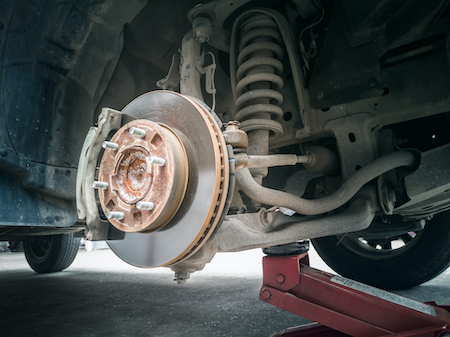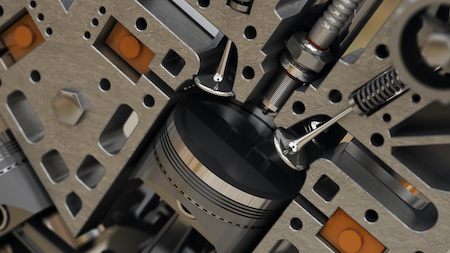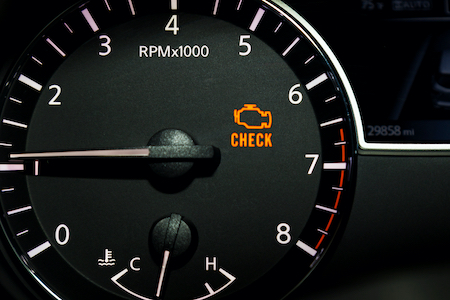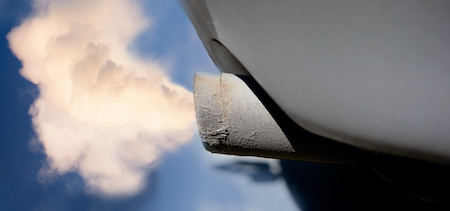In today’s society, most of us can’t imagine life without a vehicle. But for many of us, a vehicle is simply a way to get around. Sure, we buy something we like. We may choose a color we love, get a few accessories we think we can’t live without. But it doesn’t become a part of who we are.
Pickup trucks are a different story. If you have someone in your life who loves their pickup truck, you know this to be true. It’s not just a vehicle, it’s a part of their identity – almost a part of the family. They can’t imagine life without a pickup truck in their lives.
A recent article in MotorBiscuit said it best:
Americans own pickups because they are the ultimate union between the things we love most: utility and freedom. You can race or “mud” your pickup. You can start your own business or move your entire home with a full bed and a trailer hitch. Heck, you can pitch a tent in the bed and go truck-camping. Pickup trucks embody the American dream.
Are you a pickup truck owner? Chances are you see yourself with your truck for a very long time. In order to do that, maintenance will be key. But what do you do to keep your pickup truck running well year after year? Luckily we have a checklist for you. Follow these simple guidelines and your pickup truck will be part of your family for years.
Routine oil changes
 Oil changes are an important part of any car maintenance routine, but especially for a vehicle you hope to keep for years to come. While you may use your car simply to run around town running errands and bringing the kids to daily activities, your truck may do a variety of different things during the day. Drop the kids off at school, pick up a load of lumber, head out on dirt roads to camp for the night – it can experience a variety of road conditions all in the course of a few hours. Because of this variance, you should ensure the oil is changed frequently to keep all working parts operating correctly. Heavy hauling can deteriorate certain parts quicker than normal driving conditions. Error on the side of getting the oil changed on a frequent schedule.
Oil changes are an important part of any car maintenance routine, but especially for a vehicle you hope to keep for years to come. While you may use your car simply to run around town running errands and bringing the kids to daily activities, your truck may do a variety of different things during the day. Drop the kids off at school, pick up a load of lumber, head out on dirt roads to camp for the night – it can experience a variety of road conditions all in the course of a few hours. Because of this variance, you should ensure the oil is changed frequently to keep all working parts operating correctly. Heavy hauling can deteriorate certain parts quicker than normal driving conditions. Error on the side of getting the oil changed on a frequent schedule.
Battery health
Colorado weather can be considered harsh. It’s a place where it’s not unusual to have multiple days below zero in the winter, and just as many days above one-hundred in the summer. Summer heat and winter cold can take its toll on any vehicle, but especially on a pickup truck that works hard in each season. The inbetween seasons are a great time to check your battery’s health. The best way to check it is by using professional test equipment. With just a quick check, we can help determine how well it’s operating, and give you a chance to install a new one before it leaves you stranded on the side of the road. That’s a big deal if you’re miles away from a mechanic.
Inspect your tires
While your pickup truck won’t survive harsh driving conditions without a proper oil change or a healthy battery, it also won’t do well with poor tire conditions. Tire pressure can drop substantially as the temperatures fall, causing all kinds of handling issues. If your truck can’t gain proper traction, it can put you and everyone around you at risk. In order to to ensure your truck operates correctly under all sorts of conditions, check the tire pressure of all tires, as well as your spare, to ensure they are properly inflated. You can also conduct the penny test to ensure proper tread. Place a penny in the tread of each tire so that Lincoln’s head is facing you. If his hair isn’t covered, it’s time to replace a worn tire. Remember, tires can wear at different levels, so it’s important to test each tire periodically.
Pay attention to visibility
With all that your truck goes through each day, visibility factors can be impacted along the way. While you might wear a dirty truck as a badge of honor, it can impede how well your truck lights up on a dark night. Be sure your lights are working well and that they aren’t caked with dirt, or not working at all. Clean out any grime or insects from the lenses to ensure you have proper lighting control. You should also ensure your heater and defroster are in good working condition. While you may be okay in a cold cab, it’s not okay if your windows fog up and put you and others in jeopardy. Replace worn windshield wiper blades regularly and ensure they work well.
Keeping your pickup clean
While a dirt-covered pickup truck may symbolize all you do with your truck, it can also wreak havoc on various parts and systems in the process. Dirt and dust particles can cause small scratches in the finish. The finish is a protection system to keep water, dirt and debris from penetrating in and causing harm. Removing these particulates will keep this protection in place. An occasional wax job will also create a protective barrier between the harsh sun rays we receive year-round here in Colorado. Think of it as sunscreen for your pickup. You should also pay attention to the undercarriage. Traveling dusty roads can allow dirt to cake to some of the most important systems, including your brakes. Mag chloride, sand, and other winter road treatments can adhere to parts. This is about ensuring every part of your truck stays in good working condition, no matter what it goes through each day.
Find an auto mechanic you can trust
No matter what your busy days entail, the last thing you need to worry about is if your car will be ready for all you can dish out the following day. By finding an auto mechanic you can trust, you can schedule routine maintenance checks to find out where your potential problems lie. That way you can stay ahead of issues that can leave you stranded, or build up into bigger problems down the road. They can alert you to simple changes that will make a world of difference, and keep you on the road. Or off the road if you desire!
If you love your pickup truck, keeping your pickup truck running well doesn’t have to be a difficult process. It starts with being proactive with everything you do.

 The thermostat is part of your cooling system. The thermostats in your vehicle perform a similar function to the thermostats in your home. At home, you set your thermostat to maintain a comfortable temperature range. Then when your home gets too hot, the air conditioning kicks on or when it gets too cool, the heater turns on.
The thermostat is part of your cooling system. The thermostats in your vehicle perform a similar function to the thermostats in your home. At home, you set your thermostat to maintain a comfortable temperature range. Then when your home gets too hot, the air conditioning kicks on or when it gets too cool, the heater turns on. A small pickup will have gross weight of anywhere from 5,000 to 7,000 pounds. If you have a heavy duty pickup, gross weight can move up to 7,000 to 12,000 pounds. While manufacturer specs are needed to properly define actual weight, in any case you move a lot of mass around every time you sit behind the wheel.
A small pickup will have gross weight of anywhere from 5,000 to 7,000 pounds. If you have a heavy duty pickup, gross weight can move up to 7,000 to 12,000 pounds. While manufacturer specs are needed to properly define actual weight, in any case you move a lot of mass around every time you sit behind the wheel. Motor oil isn’t the only thing your truck needs. While this is the one fluid you should monitor and replace regularly, other fluids need occasional work too. Engine coolant helps keep your engine cool and prevents it from overheating. You’ll find the cap identified by a warning label and illustration to ensure you never open it up while the engine is hot. It should also be checked and filled according to manufacturer’s guidelines. It’s also a good idea to fill up your windshield washer fluid reservoir regularly, and even keep a jug of the cleaner somewhere in your car. The more time you spend on dusty, off roads, the more you’ll need to add to help you drive. While there are other fluids – brake fluid, for example – letting one of our mechanics evaluate your systems will ensure the equipment isn’t compromised, preventing you from driving.
Motor oil isn’t the only thing your truck needs. While this is the one fluid you should monitor and replace regularly, other fluids need occasional work too. Engine coolant helps keep your engine cool and prevents it from overheating. You’ll find the cap identified by a warning label and illustration to ensure you never open it up while the engine is hot. It should also be checked and filled according to manufacturer’s guidelines. It’s also a good idea to fill up your windshield washer fluid reservoir regularly, and even keep a jug of the cleaner somewhere in your car. The more time you spend on dusty, off roads, the more you’ll need to add to help you drive. While there are other fluids – brake fluid, for example – letting one of our mechanics evaluate your systems will ensure the equipment isn’t compromised, preventing you from driving. That was the starting point for traction control. As engineers looked at how well ABS controlled skidding, they also played with sensors, actuators, and computer technology to detect and prevent tires from spinning.
That was the starting point for traction control. As engineers looked at how well ABS controlled skidding, they also played with sensors, actuators, and computer technology to detect and prevent tires from spinning. Question: My car failed its emissions test -what do I need to do?
Question: My car failed its emissions test -what do I need to do?
 An EVAP leak is a problem somewhere in the evaporative emission control system (EVAP). The EVAPs purpose is to contain any fumes released from gasoline, and prevent them from seeping out and impacting the environment.
An EVAP leak is a problem somewhere in the evaporative emission control system (EVAP). The EVAPs purpose is to contain any fumes released from gasoline, and prevent them from seeping out and impacting the environment. These pollutants escape and cause problems as they react with the environment. When exposed to sunlight, for example, hydrocarbons impact ozone. Nitrogen will linger in the atmosphere and add to acid rain. Carbon dioxide traps heat here in the earth’s atmosphere. And all of this has been building over time – for over a century as auto production has scaled over the years.
These pollutants escape and cause problems as they react with the environment. When exposed to sunlight, for example, hydrocarbons impact ozone. Nitrogen will linger in the atmosphere and add to acid rain. Carbon dioxide traps heat here in the earth’s atmosphere. And all of this has been building over time – for over a century as auto production has scaled over the years. Even with today’s technology and all the manufacturing upgrades we’ve made over the years, it’s still impossible to find a perfectly formed tire that will continue to be balanced all the way around as it ages. There will always be a part of the tire that ways a bit more, is a little thicker than other areas, or has imperfections that cause it to fall out of balance.
Even with today’s technology and all the manufacturing upgrades we’ve made over the years, it’s still impossible to find a perfectly formed tire that will continue to be balanced all the way around as it ages. There will always be a part of the tire that ways a bit more, is a little thicker than other areas, or has imperfections that cause it to fall out of balance.